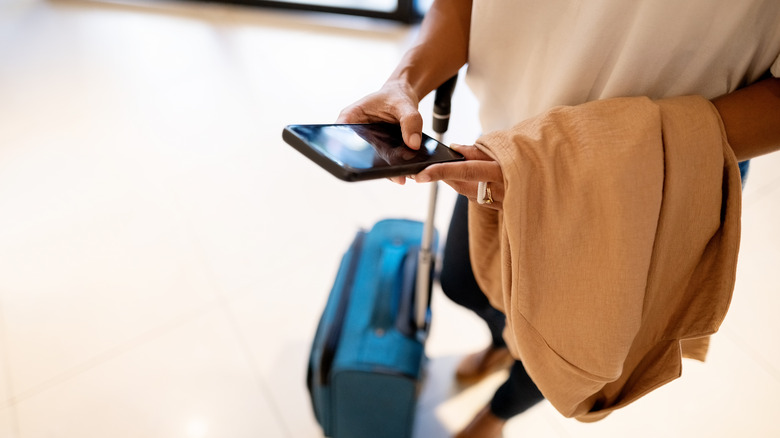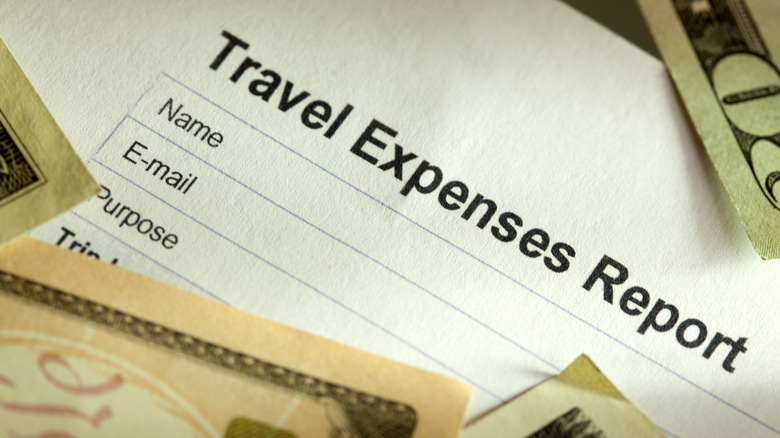Can Travel Expenses Be Deducted From Your Taxes? Our Expert Weighs In
Traveling is one of life's greatest joys, but it often comes with a hefty price tag. As tax season approaches, many wonder whether these expenses can lighten their fiscal load. To shed light on this matter, we turned to Brittney Suttle, a Certified Public Accountant (CPA) and the owner of Knies & Co., for an exclusive interview. Specializing in virtual bookkeeping and tax services for female entrepreneurs, Suttle is well-versed in navigating the complexities of tax deductions related to travel.
When it comes to deducting travel expenses from your taxes, the distinctions between personal and business travel are paramount. "Typically, unless it's for business travel, there is little you can deduct," explains Suttle. For personal travel, deductions are primarily limited to miles driven for medical reasons or charitable purposes. However, for small business owners or freelancers, the scope for deductions widens significantly to include airfare, lodging, meals, and more, provided these expenses are incurred in the pursuit of business. According to the IRS, "Travel expenses are the ordinary and necessary expenses of traveling away from home for your business, profession, or job."
If you're employed by a company, the best route is to seek reimbursement for any business-related travel expenses directly from your employer. Brittney Suttle advises this is because "unreimbursed employee expenses currently are not tax-deductible." However, the landscape is different for entrepreneurs, freelancers, and digital nomads. They can directly deduct qualifying travel expenses from their business income, provided these expenses are "ordinary and necessary" for their business operations.
Navigating personal and business travel deductions
In contrast, the waters of personal travel deductions are a little murkier. According to Suttle, most personal travel costs do not qualify for deductions unless tied to medical or charitable activities, and even then, you must itemize your deductions to benefit. For proprietors, however, blending personal and business travel can sometimes work in their favor. "If you're a business owner and take a business trip where some of the days are spent on personal travel, there are instances where the full travel costs can be deducted via the business," Suttle notes.
When deducting business travel expenses, there's technically no cap on the amount. Yet, the criteria for what constitutes a deductible expense are strict. "It must be an ordinary and necessary business travel expense," Suttle advises. Moreover, the travel must occur away from your tax home for longer than a day's work. The IRS identifies your tax home as the city or general area where your business or work is located.
She cautions against writing off trips with little to no relevance to your business. "For instance, I can't go to Sedona, take some photos on my iPhone for social media, and call it a business expense. Sedona has nothing to do with my business nor my brand, so it wouldn't be necessary," warns Suttle. This would be considered a lavish expense for personal purposes, whereas travel expenses for legitimate business activities — like hosting a team retreat in Sedona, Arizona – would be considered deductible.
Getting approval from the IRS for your travel write-offs
Ultimately, proper documentation is crucial for deducting travel expenses. You must keep detailed records of each expense, including dates, amounts, places of travel, and the business purpose of the expense. Receipts are required for lodging, regardless of the amount, but for other expenses, receipts are required only for expenditures of $75 or more. These expenses are typically reported on Form 1040, Schedule C for self-employed individuals, or Form 2106 for employees.
For domestic travel, the rules are fairly straightforward. However, international travel requires a closer look at the percentage of time spent on business activities versus personal activities to determine the deductible amount. For expenses related to conventions, the IRS requires that the convention be directly related to your business and held for business purposes. Additionally, for cruises, there are specific limitations and reporting rules, including a cap on deductions (under $2,000) and a requirement that the ship be a U.S. registry.
Without question, Brittney Suttle's insights into tax deductions highlight the importance of understanding the complex tax laws that apply to different types of travel. As always, when dealing with tax matters, especially those as nuanced as mixed personal and business travel, Suttle suggests consulting with a tax professional. Her expertise, which she also frequently shares on her Instagram, underscores the tailored approach needed for each individual or business entity, ensuring that deductions are maximized within the bounds of the law. Here's to smooth travels and a hassle-free tax season!


